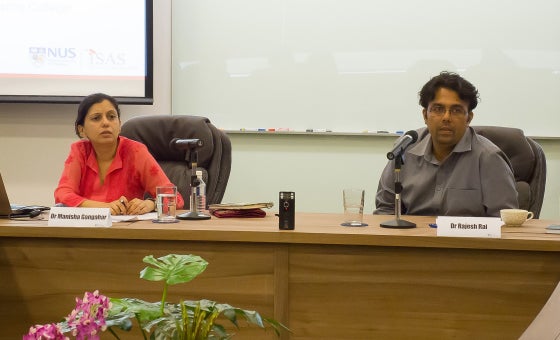
| Event Title: | SASP-ISAS Joint-Seminar |
| Topic: | Kashmir Conumdrum: Identity, Violence and Memory |
| Date/Time: | 03 July 2014 | 00:00 - 09:27 |
| Venue: | ISAS Board Room |
| Speaker/s: | Dr Manisha Gangahar, Assistant Professor, Goswami Ganesh Dutta Sanatan Dharma College |
| Description: | More than six decades and this question-whether Kashmir is, was or can be, an integral part of India?'can still stir passionate debates and violent protests on the streets. The territory is disputed, but can one say that the identity is not? What defines being an 'Indian' or being a 'Kashmiri'? The question of identity can consume lives and erase communities. In this seemingly tug-and-pull of homogenisation and fragmentation, as a result of a troubled history, political blunders and alliances, more than discovering a meaning, it is identity politics that a Kashmiri is found caught in. Since the Valley became a conflict zone, much of the social and political life has turned into questions of recognition and identity poses a quandary. And, when identity is comprehended as something that comes from the outside rather than something discovered as having existed within, narratives become essential in providing a sense of identity. Through the reading of narratives from and about Kashmir, the speaker seeks to explore how ordinary people negotiate spaces in their lives in a conflict zone. Peace is a befuddling word in Kashmir, not easily understood and even more difficult to explain. There is, of course, no one way of looking at one's identity and when concepts like 'nation', 'religion' and 'region' come into play to shape up the idea of 'self', it becomes more complex and problematic. While each offers a sense of identity and belonging, the concepts are equally capable of leading to an identity crisis and Kashmiri identity has been its victim. Beyond the documented and archived facts is a landscape that is deeply personal and it is through these personal accounts that emerges the primacy of memory and its capacity to provide a meaning. The author explores how the way in which one remembers and narrates the past reflects the ways in which identity are implicated in the present. |


